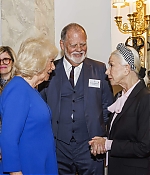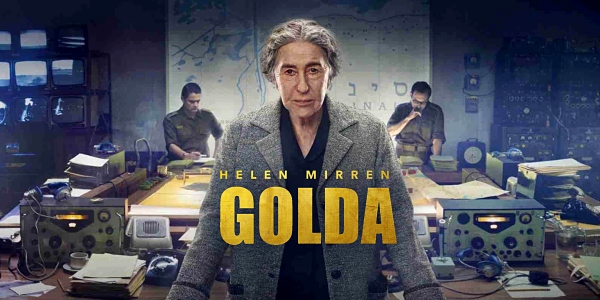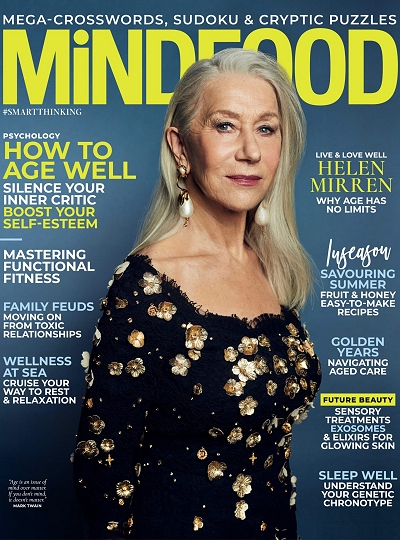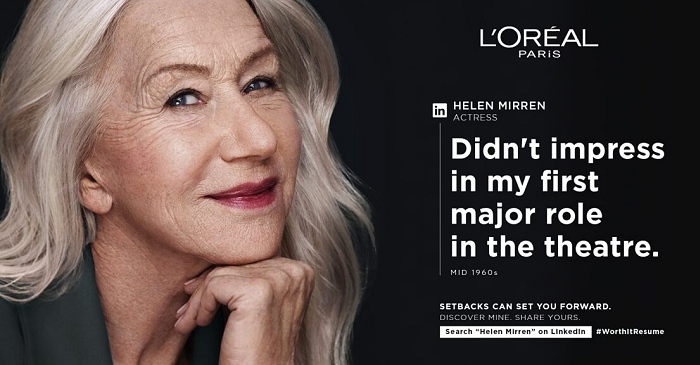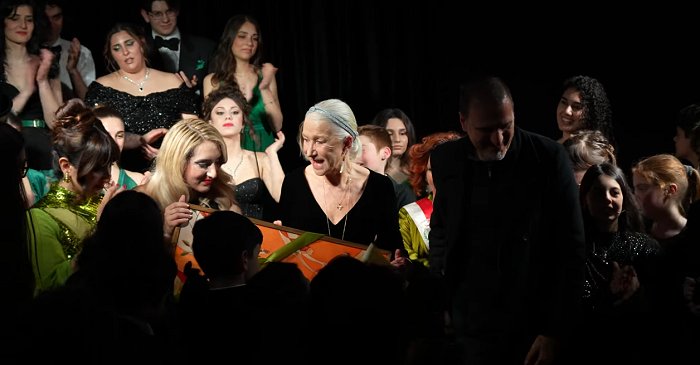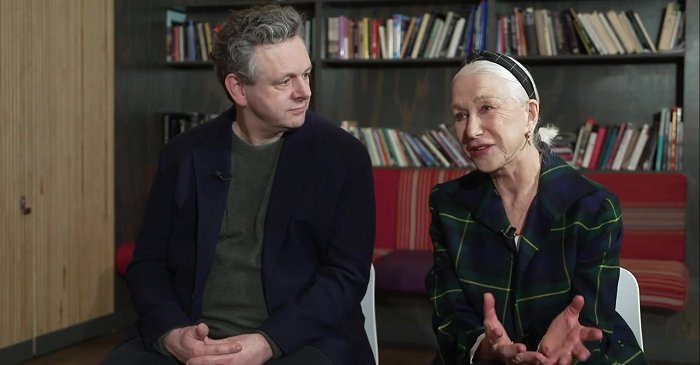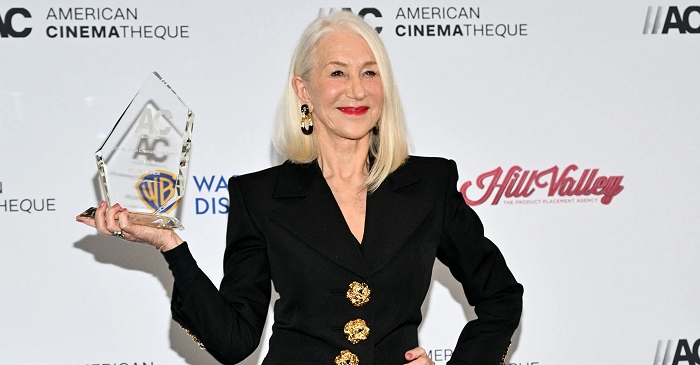
|
Welcome to The Helen Mirren Archives, your premiere web resource on the British actress. Best known for her performances with the Royal Shakespeare Company, "Prime
Suspect" and her Oscar-winning role in "The Queen", Helen Mirren is one of the world's most eminent actors today. This unofficial fansite provides you with all latest
news, photos and videos on her past and present projects. Enjoy your stay.
|
Celebrating
10 years
on the web
|
We already know that Dame Helen Mirren rules: whether it’s her style icon status—confirmed at both London and Paris fashion week this year—or her award-winning portrayals of Queen Elizabeth II (The Queen) and Queen Elizabeth I (Elizabeth I). This week, Mirren makes her regal return to the screen in HBO’s Catherine the Great. Mirren is both the star and executive producer of the historical drama, which premiered on Sunday night and chronicles the reign of Russia’s most progressive female ruler. Later this fall, the actor returns to the big screen alongside Sir Ian McKellen in The Good Liar (out November 15). The powerful duo portray mysterious conman Roy and his would-be mark, Betty, a wealthy widow with some secrets of her own. In many ways, the two roles of Catherine and Betty couldn’t be more different. Yet in both we see Mirren’s acting at its sharpest as she sidesteps men who think they either know better or can get the better of her. The actor spoke with Vogue about Catherine the Great’s real-life legacy, the importance of equitable representation for women, and what she looks for in any new role.
This is a stunning series. Can you tell me about what best informed your characterization of Catherine, as both a ruler and a woman?
The great thing about Catherine is she was a prolific letter writer—we have her letters! She wrote endlessly. You can’t believe that anyone could live long enough to write the amount that she wrote. We see her letters to Grigory Potemkin, her yearning for him, her missing him, her loving him. Her letters to ambassadors, to Voltaire, to philosophers, to scientists. I don’t know how, but miraculously those letters have survived. We see her voice very clearly, who this person is. You know, you can see this fun-loving person with an inquiring mind. She makes jokes. She’s very sweet. But at the same time you can see this fierce intellectualism; this curiosity and thirst for knowledge. She was a truly extraordinary woman.
Did you feel that your dual role of executive producer allowed you to further shape how Catherine’s story would be told?
As executive producer, I had a voice in who would write it because, obviously, that’s the most important thing when you’re dealing with a complex narrative like this. It’s a very challenging project for a writer. They’ve got to get it historically accurate, and at the same time, develop the characters to make sure the audience understands who’s who and what’s what and what’s happening. I’d worked with Nigel Williams, who wrote Elizabeth I. I thought he’d done that so brilliantly. So as executive producer, I had a voice to say, “I would like Nigel to write it.” And then I also had a say in the sense of asking Philip Martin to direct it. I’d worked with him before and I knew what an incredibly sensitive, but at the same time bold, director, he was. He directed a lot of The Crown’s first season and his work was spectacular. Once you’ve got those sorts of talents on board, you really sit back and let them do it because they understand, and they were very keen to give a truthful portrait of Catherine and Potemkin and the history.
You’ve spoken out against the misogyny in the way she’s been remembered as some kind of out of control sex-addict. In the show, we see how those rumors, started by her son and the men in her own court, threaten to overshadow her achievements.
Yes, it makes me so angry! It makes me rather angry that there are these feminists who have swallowed that hook, line, and sinker and never questioned it when actually the historical truth is all there to be discovered if you want to discover it. That really, really annoys me. It’s such an easy way to belittle a woman who’s been successful in history. They did the same with Cleopatra, instantly. They couldn’t do it with Elizabeth I because she was the virgin queen. She knew that if she behaved the way any man would have in that situation, any of her political or other successes—anything that she did—would be demeaned by history. So she was very careful. Catherine’s reign in the 18th century had a different kind of attitude toward sex and sexuality. But she was a serial monogamist. She loved men. She loved having a guy, she loved going on dates. She said, “If I’m addicted to anything, I’m addicted to being in love.” She just loved the flirtation, the romance. I’m sure she loved the sort of secret little moments when your hands first touch. But she was in no way some sort of crazed sexual addict.
It calls to mind one of the most powerful lines you deliver in the series. As Catherine, you say, “I survive, as I have for half a century, in a world that does not want me.” Do you think that powerful women still reckon with the sentiment of that statement, even today?
Absolutely. I mean, you look at Hillary Clinton—I’m not equating Hillary with Catherine the Great, don’t get me wrong—but certainly you think of Hillary’s trajectory and everything she’s had to maneuver around and deal with. Women have 20 major hills to get over before they can get to the summit, ones that men don’t have to deal with, and sometimes those hills are the ones exhaust them or bring them down. I do think things are changing, incidentally. I think the landscape of the relationship between men and women, between women and the workplace, the perception of what women are capable of; I think it’s changing. One realizes that it’s ultimately to do with opportunity.
Building on that, how has the way women wield power changed over the course of your career?
Well, it’s just extraordinary, the changes of the last ten years or maybe even the last five years. I mean, there were absolutely no women directors for a long time, until comparatively recently. That’s certainly true for the whole of my professional life up to the last five years. There were no women directors in theater. There were no women directors in film. There were very few women writers in the theater and in film. I really agree with Geena Davis’s initiative [to research and advocate for gender parity in media]. I used to sit in front of the television 20 years ago with a piece of paper. Every time I saw a female face, I put a little mark, and every time I saw a male face, I put a little mark. Within five minutes, the male side would be completely full! Three pages in, and on the woman’s side I might have marked off five women. I’m going, “Wait a minute, we’re half the population. Why do I only see three of me and 50 of them? This is sad—this is wrong. There’s something wrong here.” I was feeling that very strongly 20, 30 years ago. But it’s changed, which is great. In some ways, though, it hasn’t changed. It still enrages me when I see pictures of some political house and it’s 99% men and maybe you’ve got one woman right at the back somewhere.
What draws you then to these characters like Betty and Catherine, women who subvert any kind of victim narrative and instead turn out as interesting, layered, mysterious characters?
Well, there you go—those descriptions you’ve got there is what draws you to these people. That’s catnip for female actors. But also, your partners in the process are incredibly important. Whether it’s Catherine or The Good Liar. With The Good Liar director Bill Condon, his work is spectacular. He also happens to be this sensitive, great person. And then of course Ian McKellen [Mirren’s co-star], who I’d worked with on-stage but never in film, he’s one of Britain’s greatest actors. Obviously I’m going to want to work with him. On a film, your partners are incredibly important.

